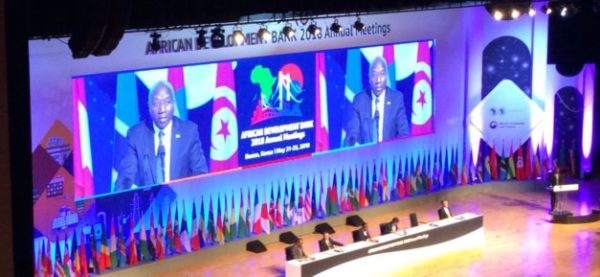Adama Wade, Busan, South Korea.
These will not be the first meetings of the African Development Bank in terms of record attendance. But, certainly, these meetings opened this May 23 in Busan, 2 hours of TGV of the Korean capital, Seoul, will constitute a powerful viaticum for the African political decision-makers in charge of the development.
It is almost impossible to seize this industrial model of a country that had a GDP per capita of half that of Ghana in 1960 without questioning the flat trajectories of African economies, best students of the World Bank and the IMF by their habituation to precepts that have never worked.
The adventure of Korea’s industrialization began in 1965 with the construction of a giant steel industry, a project that the World Bank refused to finance. Posco, the largest steel company in the world, imported its ores from Australia at 9,000 km. Private people were not ready to do it. The project saw the day thanks to a loan from Japan.
The dragon stood up to the dominant doxa of the Bretton Woods institutions and, starting from steel, began its takeoff. Meanwhile, Africa has adopted a policy of import substitution very quickly caught up by the weakness of the sovereignty of economic and strategic decisions.
While the continent’s growth rate was 1.6% in the 60s and 70s, it fell to 0.7% during 20 years of structural adjustment and then hiked 6% over the corresponding 2004-2014 grace period. the commodity boom.
Meanwhile, South Korea has taken the path paced by US and Japan models. If the great American power, then a tobacco exporter, had followed the precepts of Adam Smith, who urged it not to industrialize, what would it become today?
Admittedly, the task is difficult for Africa, which will have to build its models within a space constrained by the WTO and the various multilateral and bilateral treaties and in a context of increased dependence on foreign lenders. Beware again of false promises.
The idea of a post-industrial era, or even post-knowledge, made strong by the shift of the world economy towards digital, pushes some economists to recommend a shortcut for African countries. Certainly, but this, if it is defensible from the theoretical point of view, can not ignore the reality of a continent that, soon to be 60 years after independence, still bids its raw materials to import more and more expensive products .
The Korean model had as its starting point and point of arrival the political will. All other parameters have been negotiated and are still negotiated.



